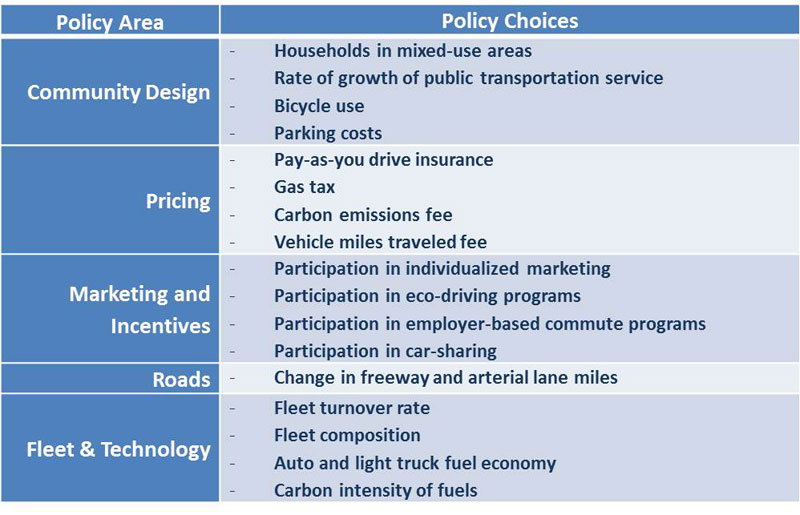Data and Modeling to Support Scenario Planning
The Oregon Department of Transportation (ODOT) developed Metropolitan GreenSTEP, a strategic analysis model, to allow planners to quickly test hundreds the effects of transportation and land use scenarios on greenhouse gas emissions. Beyond greenhouse gas emissions, the GreenSTEP model produces more than 70 indicators that can be used to evaluate other benefits and impacts associated with scenarios including vehicle miles traveled by bike, household fuel costs, and local gas tax revenues.
The GreenSTEP model uses data from a variety of sources including the 2001 National Household Travel Survey, U.S. Census, Bureau of Economic Analysis, (BEA), National Transit Database (NTD), and Moving Cooler. The model uses Census data for Oregon to develop household characteristics including income, household size, and age of household occupants. Much of the travel behavior model components were estimated from the 2001 National Household Travel Survey (NHTS) data, specifically estimates of daily travel by household.
The GreenSTEP model allows planners to test a variety of policy choices including:

In addition to GreenSTEP, the Central Lane scenarios will be evaluated using the Integrated Transport and Health Impact Modeling Tool (ITHIM). ITHIM will be used to compare alternative scenarios based on public health indicators such as chronic illness incidence or change in fatal injury incidence.
The GreenSTEP model summary memo (CH2M Hill)
